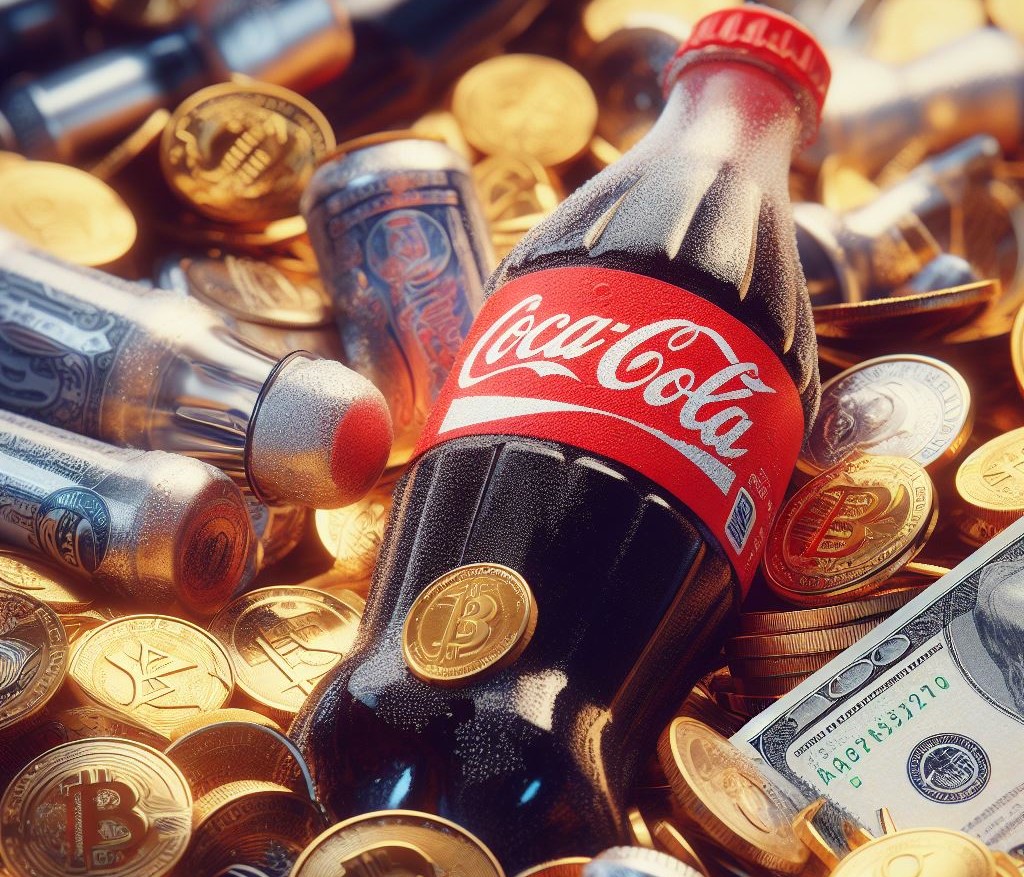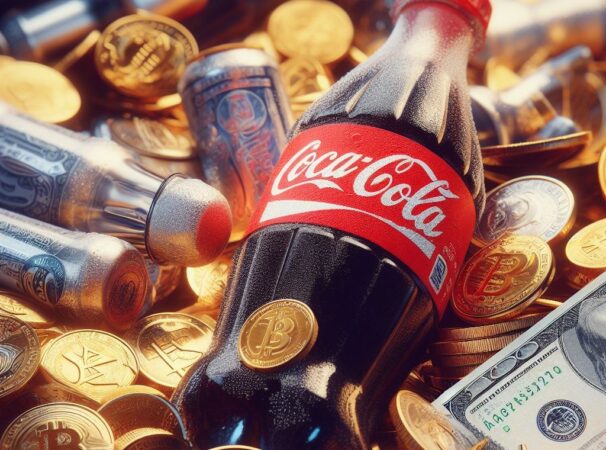UBI and a global currency based on a global product
Core idea:
UBI and a global currency that is based on a global product for instance 1litre of Coca-Cola, or some product like it that is truly global, and the base value easily determined. 1litre of coke is worth one “coke” coin in every country and thus the UBI is of equal value for everyone, independent of fiat currencies but transferable or exchanged for other cryptos or local fiat. A global stablecoin, not based on a currency but a product. With AI determining the value and preventing price gouging and manipulation by maybe looking at the input price of a coke, or a basket of essential goods and services. An equivalent and equal amount can be paid to everyone independent of country that will cover basic living cost say a thousand cokes C1000 a month, obviously it is not meant to by Coca-Cola but just as a fair and global reference.
Expanded:
Imagine a world where everyone receives a universal basic income (UBI) that is enough to cover their basic needs, regardless of where they live or what currency they use. Sounds utopian, right? But what if there was a way to make this idea a reality, using a global cryptocurrency that is backed by a real product that is widely available and consumed around the world?
Universal basic income (UBI) is a policy that provides a regular and unconditional cash payment to every citizen, regardless of their income, employment, or social status. UBI has been proposed as a way to reduce poverty, inequality, and insecurity in the face of automation, globalization, and environmental challenges.
However, one of the main challenges of implementing UBI is how to fund it and how to determine its value across different countries and regions. Some have suggested using existing national currencies, such as the US dollar or the euro, as the basis for UBI payments. But this would create problems of exchange rate fluctuations, inflation, and dependence on foreign monetary policies.
A possible alternative is to create a new global currency that is based on a global product, such as a litre of Coca-Cola, or some other product that is widely available and consumed around the world. That’s the idea behind the “Coke” coin, a hypothetical stablecoin that is pegged to the value of one litre of Coca-Cola. The coke coin is not issued by any government or corporation, but by a decentralized network of nodes that use artificial intelligence (AI) to monitor the production and consumption of Coca-Cola, and other essential goods and services. The AI adjusts the supply and demand of the coke coin to keep its value stable and prevent inflation or deflation. One litre of Coke would be worth one “coke” coin in every country, and thus the UBI payment would be of equal value for everyone, independent of fiat currencies and inflation.
But how does the AI determine the value of the coke coin? The AI uses a complex algorithm that takes into account various factors, such as the cost of production, distribution, and marketing of Coca-Cola, the availability and quality of the ingredients, the environmental and social impact of the product, the consumer preferences and behaviour, the market competition and regulation, and the global economic and political situation. The AI also compares the value of the coke coin with other currencies and commodities, and adjusts it accordingly. The AI is transparent and auditable, and anyone can verify its calculations and decisions.
A global currency based on a global product would have some advantages over existing currencies. It would be more stable, since the price of the product would not vary much across time and space. It would be more transparent, since the production and distribution of the product would be easily verifiable and auditable. It would also be more democratic, since the product would be accessible and familiar to everyone, regardless of their location or culture.
However, there are also some drawbacks and challenges to this proposal. One challenge is how to prevent price gouging and manipulation by the producers or distributors of the product, who may have an incentive to inflate or deflate its value. AI could monitor and regulate the production and distribution of the product to ensure fairness, efficiency, and sustainability. AI could also adjust the UBI payment according to changes in the cost of living, inflation, or other economic indicators.
The coke coin is not meant to replace existing fiat currencies or other cryptocurrencies, but to complement them. Anyone can exchange their local currency or crypto for coke coins, and vice versa. The coke coin can also be used as a unit of account and a store of value, especially in countries with unstable or hyperinflationary currencies.
The main purpose of the coke coin, however, is to serve as a medium of exchange for the UBI. Every month, every person on the planet who registers for the UBI program receives a fixed amount of coke coins, say C1000, which is equivalent to 1000 litres of Coca-Cola or $1000.
Why C1000?
The price of Coca-Cola can vary greatly depending on the country due to factors like import costs, taxes, and market conditions. As of September 2023, the average price for all countries is 1.01 USD. However, this is an average, and the actual price can be lower or higher depending on the specific country. Please note that these prices can fluctuate over time and may not be up-to-date.
In many countries around the world, $1,000 per month can cover basic living expenses. Some of the cheapest places to live in the world, where you can live on $1,000 per month or less, include countries like Indonesia, Thailand, India, China, Malaysia, Philippines, Grenada, Mexico, Colombia, Chile, Georgia, Bulgaria, Croatia, Greece, and Portugal1. However, it’s important to note that the cost of living can vary greatly even within these countries, depending on the city or region. In some places, $1,000 per month might allow for a comfortable lifestyle, while in others, it might only cover basic necessities. It’s also worth noting that these are averages and costs can fluctuate over time.
This amount is calculated based on the average cost of living in different regions and countries, and adjusted periodically by the AI. The UBI recipients can use their coke coins to buy whatever they need or want, or save them for later.
The UBI program funded by the coke coin is not a charity or a welfare scheme, but a human right and a social contract. It is based on the premise that everyone deserves a dignified life and a fair share of the global wealth, regardless of their location, background, or status. It is also based on the recognition that the current economic system is unsustainable and unjust, and that a radical change is needed to address the growing inequality, poverty, and environmental crisis.
The coke coin is not a perfect solution, nor a final one. It is an experiment, a proposal, a challenge. It invites us to rethink our relationship with money, work, and each other. It invites us to imagine a more inclusive, democratic, and humane world. What do you think? Would you join the coke coin UBI program? What are the benefits and drawbacks of such a system? What are some alternative ways to achieve global justice and prosperity? Let me know your thoughts in the comments below.


